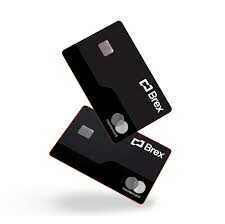Introduction
Who Is Liable for Credit Card Fraud? With your personal information, including your name, age, address, Social Security number, and credit card details, a thief may use your name to file fraudulent tax returns, unemployment benefits, loans, bank accounts, and Social Security checks. If the thief also obtains access to your credit card information, they may use this information to purchase items with your credit card.
Fraudulent charges have been made on the credit cards of around 20% of all American consumers. Victims of credit card fraud do not always receive compensation for the monetary damages they have incurred. Because of this, everyone needs to understand the rules that govern credit card fraud so that they will not find themselves on the wrong side of the law if they are unfortunate enough to become a victim of credit card fraud. If someone has gained unauthorised access to your account, the first step you should take is to get in touch with the customer service department of your credit card provider. That will ensure that you are repaid for any payments made in error.

If your credit card is stolen, what should you do?
As long as cardholders are notified before charges are made, the federal government guarantees cardholders aren't liable for credit card fraud in the modern era of electronic fraud. This protection is only applicable if the cardholder is notified before any fraudulent charges are made.
A "zero-liability" policy is being adopted by a growing number of credit card issuers to shield their clients from the effects of fraudulent payments. Including such information in the terms and conditions of your credit card agreement is possible.
If you believe your credit card has been lost or stolen, you should contact the financial institution that initially provided it as soon as possible. Because you have provided the issuer with this prior notification, they will be in a better position to assist you with the following activities:
Investigate the probability of fraud as well as its possible location. Delete any purchases that involve your fraudulent credit card. You need to delete your account to stop any other fraudulent transactions from being made. Make a replacement card available with a new identifying number printed on it. You should also request a the credit report you need from Reports from each major credit bureau so that you can have additional assurance that no other information on your account has been accessed fraudulently. This service is provided to you additional peace of mind.
Following the Fair Credit Billing Act, customers have sixty days from the date they first receive their credit card bill to lodge a dispute with the company that issued their card. Any charge that is more than $50 may be contested. They could violate the law, be inaccurately dated or inflated, or contain mathematical flaws that are not obvious. A consumer has the right to dispute an associated charge if the goods or services promised to them are not delivered.
How Do We Determine Whom To Hold Accountable?
The majority of credit card issuers' policies, as they currently exist, place the responsibility for fraudulent financial losses on cardholders in the following scenarios:
They would not be eligible for compensation if they engage in fraudulent activity, such as helping to cause the loss, benefitting from it, or assisting others. A written record of the PIN in sloppy handwriting is evidence of their carelessness. In this scenario, the onus of providing evidence of risky behaviour on the merchant's part will shift to the card issuer.
Anyone who makes unauthorised charges on another person's credit card should be made to compensate the victim for any losses they suffer. A significant advantage is that cardholders do not need to produce evidence that they are innocent of the charge.
And You Have No Responsibility?
Customers are shielded from liability under the current legal framework if they notify their bank of a lost or stolen card as soon as they become aware of the loss or theft. A third party obtained the user's personal identification number (PIN) and informed the bank before any fraudulent activity could occur. In this fraudulent situation, the information belonging to the cardholder is stolen invisibly: It is referred to as "card-not-present" fraud when there was an attempt to obtain the stolen information through the use of the Internet and then utilised to make a fraudulent purchase.

Conclusion
There are now new solutions that can assist organisations in monitoring fraudulent purchases and preventing them from occurring. However, fraudsters still use sophisticated methods to acquire credit card data, and these current technologies are available to combat such methods. Businesses and financial institutions can do comprehensive, automated inspections of incoming transactions using fraud detection systems, enabling them to discover potential warning signs.








